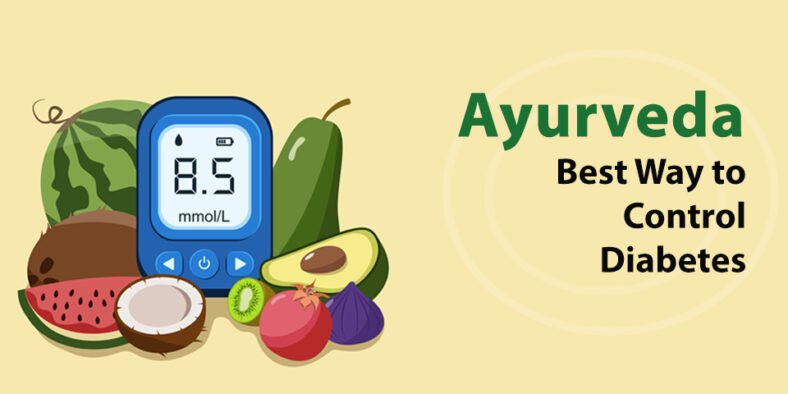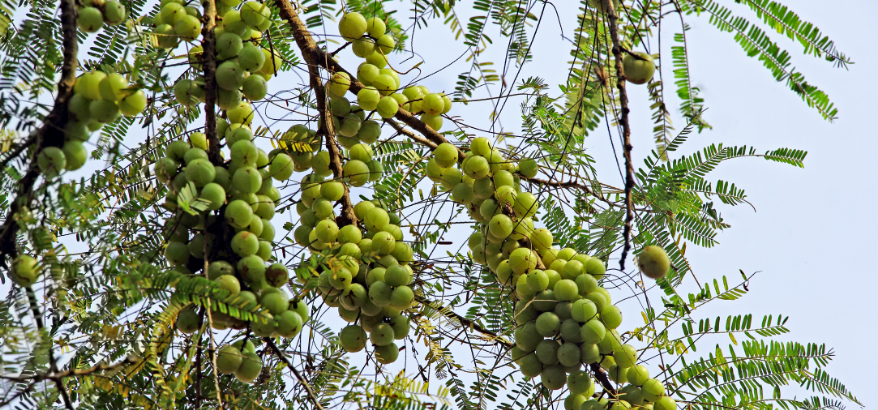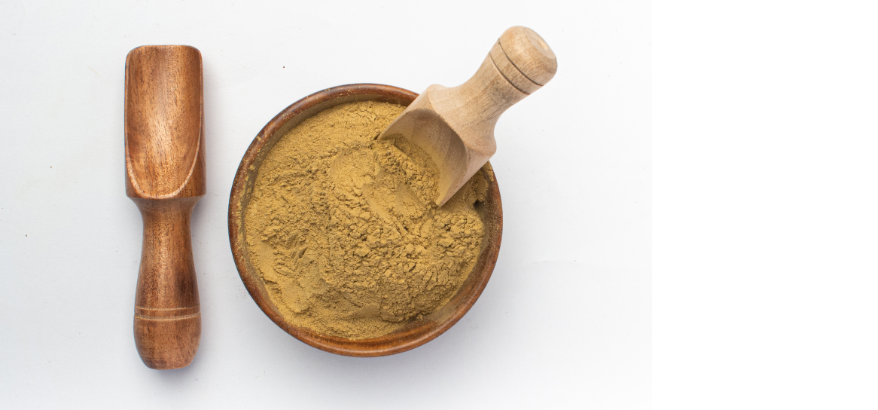Ayurveda and Diabetes: Everything That You Must Know!
Ayurveda and Diabetes: Everything That You Must Know!

Diabetes is one of the most common yet challenging health concerns that people face.
Studies report that nearly 11% of the world population is dealing with diabetes. And yes, it’s challenging to manage. However, not impossible.
Ayurveda is an ancient medical science, suggesting solutions that may help manage diabetes. In this blog, you will come across useful information regarding diabetes, its types and how to treat and control them.
So, let’s dive right in and build a healthier life.
Types of Diabetes in Ayurveda
According to Ayurveda, there are twenty types of Prameha – four types can crop up because of vata, six occur because of pitta and 10 occur because of kapha. Madhumeha, a subtype of Prameha is characterised by urine that is sweet and is co related with diabetes.
Primarily we have two types of Prameha that are common in Ayurveda:
- Avarana
- Dhatuksyaya
As per Ayurveda, Avarana occurs because of a blockage in the paths of channels. The blockage may be caused by aggravated Kapha. This causes adult-onset diabetes. On the other hand, Dhatukshaya refers to the depletion of tissues in the body. This can cause juvenile diabetes.
Apart from that, Ayurveda considers digestion to be a very important process.
The effective working of the digestive system requires the digestive fire known as Agni to be working well. If this digestive fire is weak (because of Dosha imbalance or other reasons), it can cause various problems. It results in a buildup of toxins that could affect the normal working of the body. It can also weaken the immunity and the body cannot fight infections and diseases.
Diabetes Symptoms
Some of the most common type 1 diabetes symptoms and type 2 diabetes symptoms are:
Type 1 diabetes symptoms:
- Extreme thirst
- Excessive hunger
- Dry mouth
- Upset stomach
- Urge to vomit
- Sudden weight loss
- Constant fatigue
- Blurry vision
Type 2 diabetes symptoms:?
- Extreme thirst
- Unusually frequent urination
- Excessive hunger
- Unintended weight loss
- Fatigue
- Slow-healing wounds
- Frequent urination
Diabetes can often mask the symptoms of other diseases. People who have diabetes may also have other health concerns, such as those relating to the heart or kidney. However, because of diabetes, they may not feel the symptoms. This happens because of excess blood sugar. There are many cases of people suffering a mild heart attack and not knowing about it because of high diabetes levels. Therefore, it is very important to keep blood sugar levels under control.
Causes of Two Types of Diabetes
There are several triggers that can give rise to diabetes. Here’s a list of some of the most common causes of diabetes.
Causes of Type 1 Diabetes
The primary cause of type 1 diabetes is not known. However, in this condition, the immune system can start attacking the insulin-producing cells present in the pancreas. As a result, the insulin levels in the body can drop dramatically.
This increases the blood sugar level in your bloodstream. It’s said that type 1 diabetes can crop up because of a mix of susceptibility and various environmental factors. However, being overweight is not considered a reason for type 1 diabetes.
Apart from that, lack of insulin production also results in type 1 diabetes.
Insulin is an essential hormone secreted by the pancreas (gland). It also helps lower the blood sugar levels. When the blood sugar is high, the pancreas secretes more insulin to maintain the sugar level.
In a diabetic condition, the insulin secretion goes down. As a result, sugar levels go up.
So, primarily, lack of insulin production is the reason that causes diabetes. However, there are other conditions that can trigger this condition.
Causes of Type 2 Diabetes
Prediabetes can lead to type 2 diabetes. However, in this condition, your cells can become resistant to insulin and its actions. Also, as the pancreas cannot create insulin, your body may find it challenging to overcome this resistance.
While the actual cause of type 2 diabetes is uncertain, its condition,believed to crop up because of genetic and environmental reasons. Unlike type 1 diabetes, being overweight is a primary reason behind type 2 diabetes. However, everyone who has type 2 diabetes is not overweight.
Causes of Gestational Diabetes
While pregnant, the human body produces hormones that sustain the pregnancy situation. These hormones make your cells resistant. In a general scenario, our pancreas produces enough insulin to overcome this resistance.
However, your pancreas may not keep up. In such situations, the amount of glucose entering your cells reduces. This results in gestational diabetes.
Ayurveda for Diabetes: What’s the Approach?

Diabetes and ayurveda have a healing link. Ayurveda is an alternate medicinal method that considers the overall holistic well-being rather than focusing on specific symptoms. The aim is to manage the concern from its root.
In Ayurveda, diabetes is referred to as Madhumeha (literally meaning sweet urine). Diabetes mellitus is referred to as Vata Prameha. It crops up because of an imbalance in the Vata Dosha (one of the three functional energies in the body). Diabetes insipidus is referred to as Kapha Prameha. This occurs because of Kapha Dosha imbalance.
According to Ayurveda, the following are the primary causes of diabetes:
- Being physically inactive
- Excessive sleep, including sleeping during the daytime
- Eating too much sweet food
- Excessive use of curds
- Eating too many foods that cause an increase in Kapha
Ayurvedic ways to manage diabetes
Ayurveda takes a holistic approach to help manage diabetes and most health concerns. Ayurveda suggests a multi-prong approach. The management process includes:
- Remedies using Ayurvedic herbs.
- Various therapies help aid the detox procedure that rejuvenates the body. This helps in severe cases of diabetes.
- Dietary changes help manage diabetes.
- Lifestyle changes can help manage diabetes.
Apart from this, it’s crucial to maintain a healthy lifestyle. For that, you can start a regular workout. You can consider joining the gym, cleansing your diet, and adding bitter fruits to your diet. For example, bitter gourd, gourd, and other astringent fruits and vegetables can help manage diabetes levels.
The diet to pacify Kapha needed to help manage Diabetes type 2 would include:
- Eating foods that are light, dry, and warm and avoiding foods that are oily, cold, and heavy.
- Milk products aggravate the Kapha Dosha and it is better to avoid or reduce it. Low-fat milk products can be consumed. Ghee can be used in moderation as it helps to strengthen the digestive fire.
- The Kapha diet needs more beans and legumes. Moong beans, in particular, are very helpful for diabetes patients.
- Fruits such as apples, pomegranates, and berries can be eaten.
- Rice and wheat are heavy and difficult to break down. Light grains like millet and corn can be eaten.
- Spices should be used while cooking, as they are good for Kapha Dosha. Pepper, mustard, garlic, and ginger must be included in the diet. Ginger tea is beneficial for digestion. Salt, however, should be avoided or taken in moderation.
- Ayurveda recommends avoiding meats as they may increase inflammation.
- Dietary control of blood sugar requires consuming warm food. Patients should drink warm water.
- Foods that are a bitter help in managing diabetes. Bitter gourd is an important vegetable that should be included in the diet. Turmeric is another important spice that should be included in the diet.
- Foods to be avoided are fried foods, tuber vegetables, soft drinks, fruits like mango, custard apple, dates, and bananas should be avoided. Cakes, sugarcane products, and wine must be avoided.
Ayurvedic Herbs for Diabetes
Several ayurvedic herbs may help with Ayurvedic treatment for diabetes. Here’s a list of Ayurvedic herbs that can help manage diabetes.
Amla

Amla or the Indian gooseberry, is a potent Ayurvedic herb. It’s rich in vitamin C and antioxidants; this makes it perfect for treating and keeping diabetes under control. Amla is also rich in chromium. This mineral enables proper carbohydrate metabolism. Chromium also allows your body to respond to insulin, keeping the blood sugar under control. Other minerals present in Amla are calcium, phosphorus, and iron. They help the body absorb insulin and regulate blood sugar levels.
Glymin Plus Tablets

For Blood Sugar ControlSHOP NOW
Apart from this, Kerala Ayurveda’s Glymin Plus tablets can also aid in controlling blood sugar level. This is made with natural ingredients and can be helpfulin managing fluctuating sugar levels.
Triphala

Triphala is a powdered formula that comprises Haritaki, Amla, and Bibhitaki. Using triphala has been mentioned in the Sushrut Samhita, dating back to 1500 BC. Apart from relieving constipation and improving gut health, it also acts as an Ayurvedic medicine for attaining the right blood sugar balance. As it is rich in antioxidants, it can help reduce the oxidative stress of the body. You can consume Triphala Tablets, if you dislike the taste of Triphala Churna.
Triphala Tablets

Boosts Gut Health & Relieves ConstipationSHOP NOW
Home Remedies that may help with Diabetes
Various home remedies can also be fruitful for managing diabetes. Here are a few such tips that you can be help[ful:
Fenugreek Seeds
Fenugreek seeds are easily available in most of the Indian kitchens. Soaking two tablespoons of fenugreek seeds in water at night, and drinking with the seeds in the morning can help lower blood sugar levels.
Cinnamon
Cinnamon is a natural bioactive spice and can help maintain blood sugar levels. It’s simple to consume. Just add half a teaspoon of grounded cinnamon in a glass of water, stir to mix and sip it down slowly. You can repeat this once a day.
Aloe Vera with Buttermilk
Aloe vera may be helpful in maintaining low blood sugar levels. Cut a few fresh slices from aloe vera leaves and consume it with buttermilk.
Drumsticks
In the Indian subcontinent, drumsticks are a popular ingredient in many delicious recipes. Another great thing about it is that it may help manage blood sugar levels. Add a couple of slices to a jug of water and drink from this jug whenever thirsty.
Key Takeaways
Efficient management of diabetes is crucial for ensuring a healthy life. In this blog, we discussed the said links between Ayurveda and diabetes and threw light on how specific Ayurvedic methods can help manage it. Here’s a look back at what we learned above:
- Type 1 and type 2 diabetes have varying symptoms, as mentioned in the section above.
- There can be several reasons that could trigger type 1, type 2 diabetes and gestational diabetes.
- Ayurveda takes a holistic approach to treating and managing diabetes.
- Ayurveda also suggests a variety of healthcare measures that may help with diabetes.
- Amla and Triphala are the Ayurvedic herbs that can help manage diabetes.
- Various home remedies can also help keep blood sugar levels in check.
Categories
- Ayurvedic face upatan
- Ayurvedic hair colour
- Ayurvedic mahandi
- Ayurvedic medicine
- Ayurvedic medicine for gas problem
- Ayurvedic medicine for stomach gas
- Ayurvedic medicine for stomach problem
- Ayurvedic medicine for white hair
- Ayurvedic piles churn
- Ayurvedic piles medicine
- Ayurvedic piles tablet
- Ayurvedic treatment for face
- Ayurvedic treatment for hair
- Ayurvedic treatment for weakness
- Best yoga for heart
- Best yoga for heart problem
- Body
- Chemical product
- Chemical product in face wash
- Dabur gastrina vs doctor mhp gas care churna
- Dr mhp Face upatan
- Dr mhp gas can chone vs gas o gas
- Dr mhp gas can chone vs happy culres good bye gas
- Dr mhp gas can zone vs humdard Panchol
- Dr mhp gas care churna
- Dr mhp mahandi for hair colour
- Dr vaidyas' acidity relieved vs doctor mhp gas care churna
- Hair
- Heart problem yoga
- Himalaya piles vs dr mhp piles care churna
- How to improve our weakness
- Makeup
- Natural mehandi for hair
- Reviews
- Skincare
- Stomach gas problem
- Sunscreen
- Uncategorized
- Yoga for digestion
- Yoga for stomach problem

